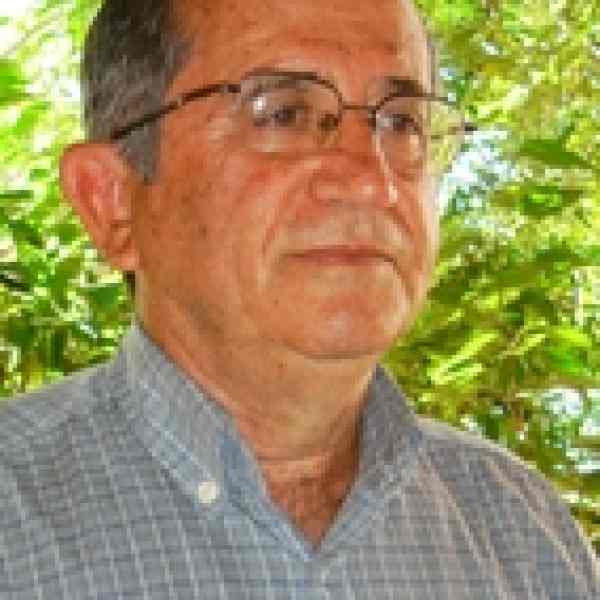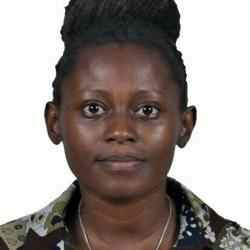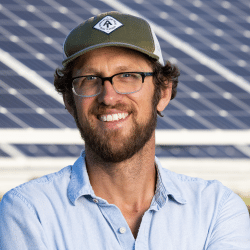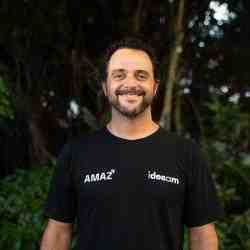前書き
Abdalaziz Moura is changing formal education in rural schools to make it more applicable to students and families living in predominantly agricultural areas. The approach counters the exodus of young people to the cities by anchoring them in the values, needs, and opportunities that are unique to their community.
新しいアイデア
Starting in the northeastern state of Pernambuco, Moura is introducing an approach to education that links classroom work with rural development needs. Working closely with the public school system, he helps teachers, students, and families of students explore new ways to develop their community, increase agricultural yield, and seize opportunities for development through the adoption of appropriate technology and improved planning. Students learn to see their role as changemakers in the community and are supported in bringing creative ideas for development to the classroom for review and incorporation into their formal education, then back out to the farms for implementation. To advance research and encourage experimentation, Moura’s team has secured a demonstration space of 3,000 square meters, which they use to guide students and communities in exploring integrated technology, organic farming, and the principles that undergird sound permaculture.
問題
The dearth of jobs in rural areas of Brazil, coupled with a perception of a better life in the city, has contributed to a dramatic migration to urban centers over the last fifty years. According to the Brazilian Institute of Geography and Statistics, in 1950 the rural population constituted 64 percent of the population, while in 2000; the figure had dropped to 20 percent. Today, rural areas are inhabited by landowners, who generally produce goods for export, or by subsistence farmers. Inspired by Paulo Freire, many citizen groups have introduced programs designed to slow or reverse the trend of migration to the cities. Most of these projects have pursued channels that are outside the system, though, and have failed to realize a transformative shift, even though many succeeded in establishing an effective alternative track. The gulf between formal education and its aims and values and the lives of rural people widened. Seeing this, Moura perceived a need to shape the public education system so that it motivated students and teachers and inspired a closer connection between classroom learning and family and community life.
戦略
Moura’s strategy for transformation begins in schools with a program offered by his organization, Service for Alternative Technology (Serta) that guides students and teachers through research, typically of agricultural needs, analysis of obstacles and possibilities for increased production, and action and evaluation. In this program, called Peads, students consult their families and neighbors to complete prepared surveys that detail who does the planting, the conditions of planting, the animals, water availability, and so on. From the composite of the surveys, students and teachers map out a plan of action to address needs, and use the content of the exercise to hone skills in grammar, mathematics, geography, history, and other traditional classroom subjects. Following an initial analysis, parents are brought into the discussion and begin to grasp the new role of the school in building up and supporting the community. For those students who continue, Peads offers 18 month classes that are conducted in parallel to the school. These classes, which prepare students to be local development agents, are held at the Sementeira field in Gloria do Goita. Training covers four main areas: personal and social development, which helps young people build confidence and master effective communication; citizenry development, which familiarizes students with the regulatory and policy frameworks pertinent to agricultural work; technical development, which addresses broad themes from computer literacy to analysis for mixed-crop farming; and business development, which gives students practice in running and managing small businesses, including paying bills and servicing clients. Graduates apply their training to their own territories, working with families and municipalities to design and implement smart strategies for economic development. Serta offers a third level of training for local leaders that connects in with the public school teachers. This track takes three years to complete, with each of three modules starting with a two-day training, and continuing throughout the year with monthly monitoring and evaluation. Moura’s program has established a way to reach the farmers directly: first, through their own young people, who bring home ideas from school lessons, and second, through an outreach effort that matches students with five farming families, teaching them to use alternative technologies for better production and showing them techniques at the Sementeira Field. Serta also works directly with farmers to teach them agro-ecology, permaculture, and organic farming, and connects them to an organic producers cooperative, Ecoorgânica, which is responsible for a network of free markets, a help site, a certification process, and deliveries to supermarkets. Currently, 120 families participate in the cooperative. Serta has reached 59 cities, which approximately 130,000 participating students, 5,000 teachers and 320 families. Some results of the work are: university admission of 66 students, each student taking with him his own volunteer project to support local development in partnership with associations, schools, and cities. In addition, there is an intense participation of young people in national and Latin American youth and education networks. Peads has been recognized by the Ministry of Education, the state secretary, mayors, and international foundations and partners. For Moura, the main challenge is taking the approach to other regions of Brazil. His short-term objectives are to reinforce the use of the methods in fifth to eighth grade classes and mid-level professional teaching, to deepen the understanding of educators, and to ensure that trained students graduate and move on to pursue post-graduate classes.
人
Moura was born in the interior city of Nazaré da Mata in the state of Pernambuco in northeastern Brazil. At age 8 he moved to Recife, where he knew a priest whose commitment to humanity greatly influenced him, directing his educational choices and early life path. Moura studied philosophy in the Regional Seminary of the Northeast, in Olinda. His training in seminary gave him early experiences of pushing for reform from within. It also afforded the chance to travel and he was able to pursue theological studies in Rome, the University of Geneva and the Center for Historical Religious Research in Bologna. He began to see a role in designing and enabling social transformation not as a minister but as an organizer, and later, as a social entrepreneur. After returning to Brazil in 1970, he spent 7 years teaching monitors in the archdioceses of Olinda and Recife to care for people across Pernambuco. The early 1980s were witness to a severe drought in the sertão, which devastated the rural population and led Moura to form a network of bishops and unions to address the challenges of the drought through the late eighties. In the absence of federal aid, the citizen and church-affiliated organizations proved important. In 1987 Moura took a course in organic farming and began to incorporate what he learned into his outreach to farmers; the first time organic farming had been discussed in the Northeast. He offered classes to groups of 60 farmers and gave smaller courses to communities. His work in rural areas proved incompatible with the dictates of Catholic leadership and he continued his work through an independent citizen organization. He created Serta in 1989. Serta’s early years were marked by informality, with the technicians serving as autonomous counselors to farmers. Recognizing that more order was called for, Moura put together a plan for rural development and began to link students to his work, offering to schools an experiential and service component to their curriculum. His work spread quickly to five cities of the sertão of Pernambuco. In 1997 the federal government opened an opportunity to rethink the approach to rural education. Moura presented Peads and was able to implement the program in some cities, observing a significant transformation within 6 months. For his work and its impact on rural communities, Moura was invited in 2,000 to participate in an effort to involve young people in the development of the Northeast. Through this opportunity, he worked closely with the private sector, and began to plan for longer-term sustainability and greater efficiency.



